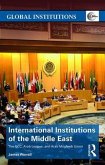In this 2010 edition of their book on the economic development of the Middle East and North Africa, Clement Henry and Robert Springborg reflect on what has happened to the region's economy since 2001. How have the various countries in the Middle East responded to the challenges of globalization and to the rise of political Islam, and what changes, for better or for worse, have occurred? Utilizing the country categories they applied in the previous book and further elaborating the significance of the structural power of capital and Islamic finance, they demonstrate how over the past decade the monarchies (as exemplified by Jordan, Morocco and those of the Gulf Cooperation Council) and the conditional democracies (Israel, Turkey and Lebanon) continue to do better than the military dictatorships or 'bullies' (Egypt, Tunisia and now Iran) and 'the bunker states' (Algeria, Iraq, Libya, Sudan, Syria and Yemen).
'... the book provides readers with a deep analysis of economic decision-making processes in a number of country cases, and it is particularly successful in highlighting the reasons behind the economic success of democratic countries vis-à-vis authoritarian regimes. The framework the authors establish throughout the study is useful for comprehending the political economy of development in the MENA region.' Yusuke Kawamura, New Middle Eastern Studies








